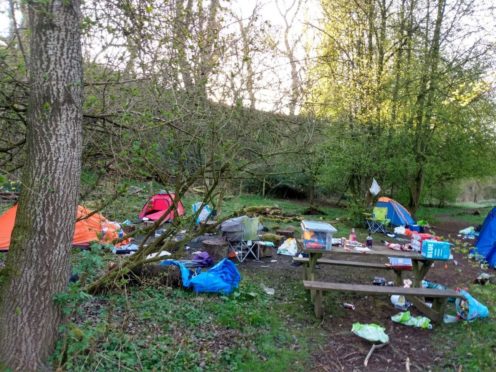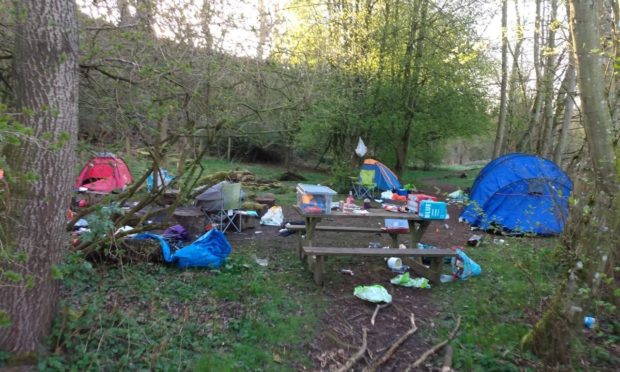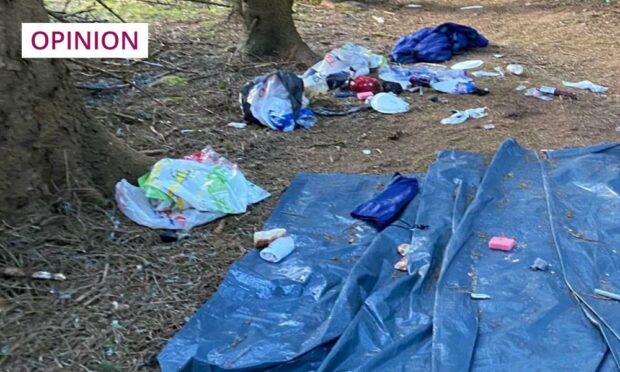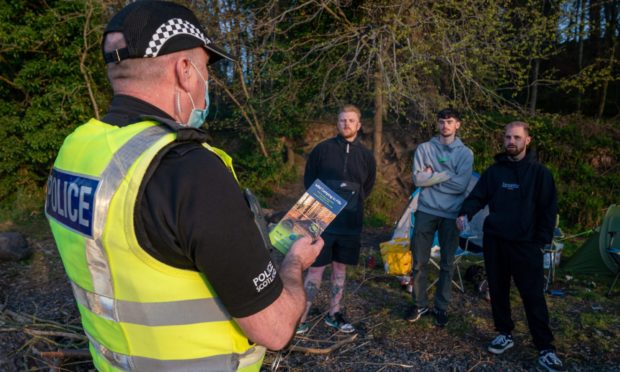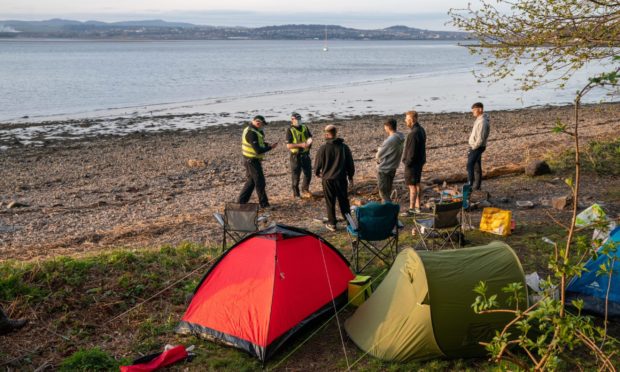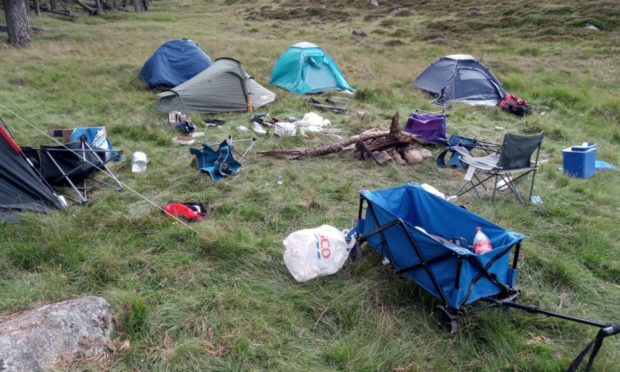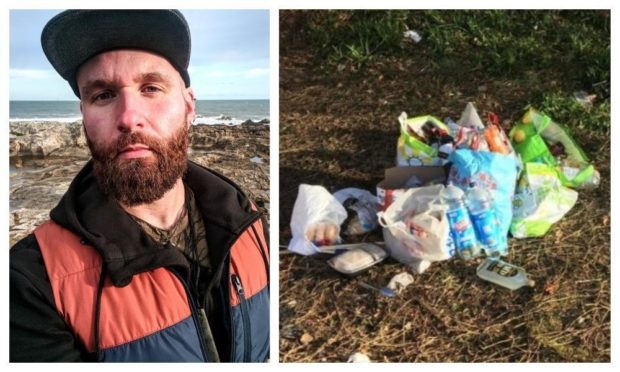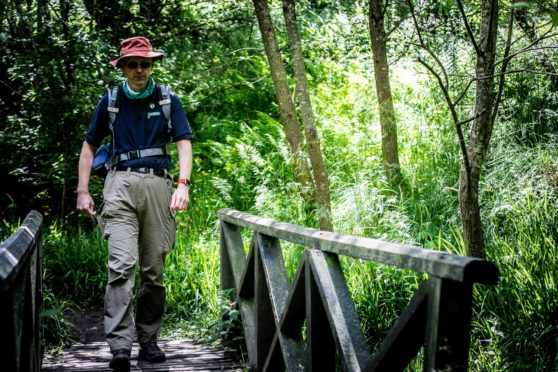Police officers should support rangers to clamp down on “dirty camping”, a leading countryside expert has said in the aftermath of a spate of issues over Easter weekend.
Richard Barron, chief operating officer with ScotWays, highlighted how greater police involvement in the Loch Lomond and Trossachs National Park deterred irresponsible campers from leaving a mess behind them.
He said: “People would realise that sometimes a ranger would arrive, but the policeman might be just behind them as well.”
His intervention comes after a number of incidents over the weekend, including at Angus beauty spot Barry Mill, that provoked the ire of first minister Nicola Sturgeon.
We are asking readers to share their experiences of the ‘dirty camping’ problem, using the form at the bottom of the article.
Richard said lessons could be learned from a trial where officers worked “really closely” with rangers to tackle dirty camping at Loch Lomond.
Officers would join rangers on patrols.
Richard said: “The police were good because they would say to folk ‘I can see what you’re doing, I appreciate you’re here for the night – I’m going to get your details and then if the mess is still here in the morning I’m going to come and give you a call’.
“It’s a different approach. That seemed to work in that situation.”
‘Worse year’
Anecdotally, last year was one of the worst for “dirty camping” as more people visited the countryside during coronavirus restrictions.
Richard said the issue was getting worse “in some areas”.
He added: “It’s not a new phenomenon. I did wonder is it actually worse?
“But talking to people, I honestly think in areas it has been worse.
“Probably, folk haven’t been able to get do their normal thing, go to the normal places and they’ve felt ‘right I’ll just come in and do this [camping]’ and then we’ve seen the difference — definitely more of it.
“But still not everywhere. Some areas have escaped it completely. It’s been honeypot sites, or more traditional places people would go, that have suffered.”
Notorious sites in Tayside and Fife
Trouble spots are littered throughout Tayside and Fife, Richard added.
He highlighted issues at Lunan Bay in Angus where problems with visitors became so bad last year a local business closed its doors for the entire season.
“One that was brought to our attention was Lunan Bay. They’ve had a variety of problems from people camping on the beach – lighting fires, the perennial dog mess being left lying around,” he explained.
“I know that there’s been parking issues on the likes of the Lomond Hills. You’ve got this fantastic, iconic Fife hillside, but you’ve got a small car park.
“The car park would fill, but people would keep coming and saying ‘I’ve come for the day and I am having my day out’ so they park on the road. That’s caused problems.
“Anywhere where you’ve got a space where people are familiar with going to, I think that’s been a thing – those real honeypot sites.”
‘I find it so depressing’
Richard said the incident at Barry Mill over the weekend had left him “disheartened”.
“In all the years that I’ve been doing this, it’s when someone says ‘can you just look at this?’ and you go and find something literally like Barry Mill – I saw the pictures from that – I feel it’s really disheartening that folk have come and that’s how they’ve treated it.
“And you think ‘who do you think is going to tidy up after you?’.
“I find it so depressing when folk act like that – that’s probably the polite version.”
How do we tackle the issue?
Richard thinks greater education and enforcement used in tandem can help curb the issue.
He is hopeful there will be more involvement with police this year after the rise of “dirty camping” throughout 2020.
“The biggest worry is that we need boots on the ground. We need people to interact with people.
“Having that mix, and I know with Police Scotland being more involved this year it’s going to mean there is a better understanding of the rural environment within the wider police force.
“You’ve got the backing of the police, you’ve maybe got a team going out that could be a police officer, it could be a volunteer ranger and they’re doing patrols and that will start to get the message out to people that ‘I might go and do this and I might get away with it, but equally I might get caught.”
Police provide ‘visible presence’ at beauty spots
Area Commander, Chief Inspector Wayne Morrison said Police Scotland officers are supporting partners to encourage informal campers to be responsible and considerate to the communities they are visiting.
Park rangers are often the first line of defence in combating the issue.
He said: “At the moment, it is important to remember that you should not travel outwith your local authority area except for essential purposes and I urge people to follow the regulations. If you are visiting beauty spots within your local area, do so safely and leave no trace of your visit.”
He said park rangers and local authorities have enforcement powers to tackle anti-social behaviour issues like dirty camping and can issue fines.
“Police Scotland will support this activity where required and will continue to provide a visible presence at beauty spots to deter illegal behaviour,” he added.
